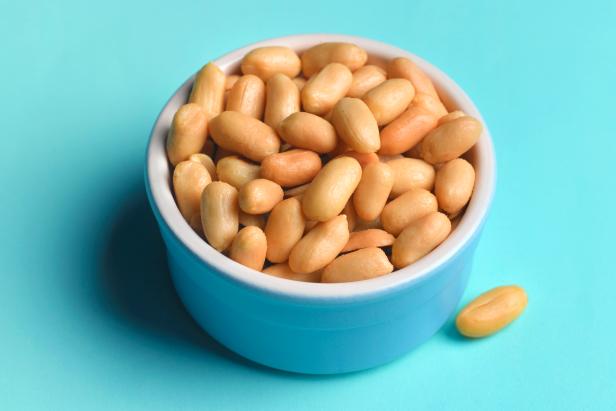Exciting News for Peanut Allergy Parents — Researchers Say There Are Two Treatments That Induce Peanut Allergy Remission in Kids
Here’s what parents need to know.


Peter Dazeley
While a peanut butter and jelly sandwich is usually a kid-friendly lunch staple, for kids who have peanut allergies, this simple sandwich could be very dangerous. For parents, it can be hard to navigate the food allergy world, especially when your kids head to school. While you can read all the labels at home, there’s so much stress around worrying if your child will accidentally eat something that contains peanuts.
In recent years, there has been an uptick in research and treatments to help reduce the symptoms of peanut allergies, and according to a new study, combining two treatments may be the answer.
This study was done by Murdoch Children’s Research Institute and researchers found that the combination of a probiotic with oral immunotherapy — which is the gradual introduction of peanuts — significantly induced remission. In fact, half of the kids achieved remission after the combo of treatments, allowing them to stop treatment and safely eat peanuts and peanut products.
Over 200 children between 1 and 10 years old were part of the study and researchers followed these kids for four years. Researchers found that the combination treatment resulted in 74% of kids achieving remission after 18 months of treatment, and 70% of those initial responders remained in remission four years later. The children who reached clinical remission were able to stop treatment altogether and start eating a standard serving of peanuts freely.
Researchers also noted that the younger the child, the more successful the combo of treatments worked.
"The results show that high dose peanut oral immunotherapy provides meaningful benefit to treated children," says study lead professor Mimi Tang. "As there is currently no cure, patients must adhere to strict allergen avoidance, which leads to psychological distress and reduced quality of life."
Peanut allergies are considered the most common food allergy and around three million Americans have a peanut allergy. Researchers are hopeful that their findings can help parents and kids live their lives without the added stress of a food allergy.
YOU MIGHT ALSO LIKE:















